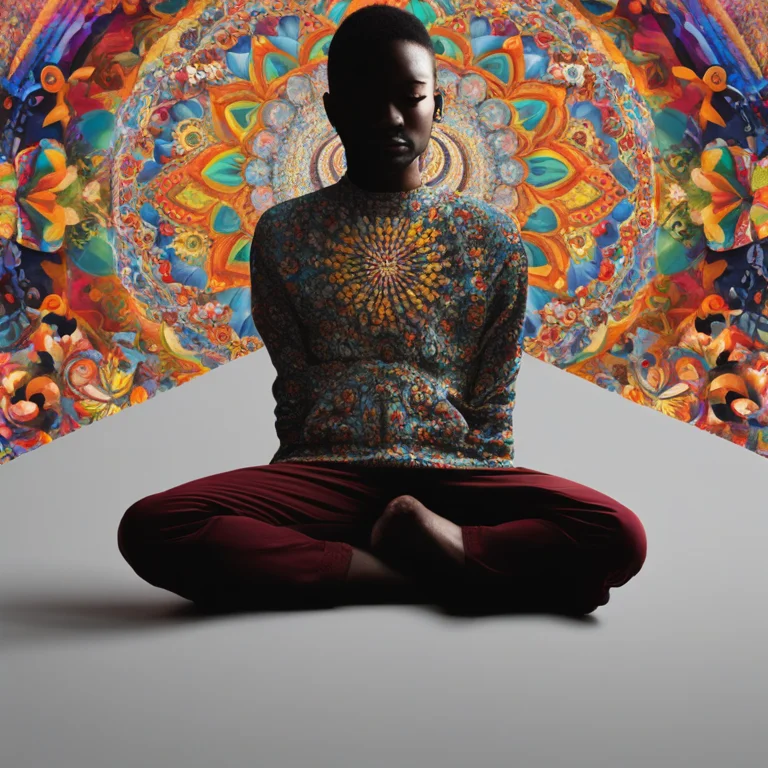
20-Minute Mindfulness Meditation Routine
Discover a simple 20-minute mindfulness meditation routine to refresh your mind and improve your daily focus.
article by Hina Kurosawa
Introduction to Mindfulness Meditation
Meditation has transcended time, serving as a bridge to greater self-awareness and inner peace. Among the myriad forms it takes, mindfulness meditation has gained notable prevalence in the digital age for its accessibility and adaptability. This practice isn’t tied to any specific religion or philosophy; instead, it is a universal tool to calm the mind and sharpen one's concentration. In today's fast-paced world, setting aside just 20 minutes for this practice can induce transformative effects on personal well-being. As we dive into a gentle routine, it's essential to find a quiet location, sit comfortably, and prepare to guide your focus inward, fostering a serenity that extends beyond these moments of stillness.

Beginning with Breathing
The foundation of mindfulness is rooted in breath awareness. Initiating your session with deep, conscious breathing helps signal your body to relax and prepares your mind for the practice. Begin by closing your eyes, taking a slow inhalation through the nose, followed by a controlled exhalation through the mouth. Count your breaths if that aids concentration, anchoring your awareness in the present moment. This simple act of returning to your breath throughout the meditation serves as an anchor to the present moment, cultivating a mindful state that diminishes the noise of relentless thoughts and external pressures.

Body Scan for Tension Release
Mindfulness extends to the feelings within the physical vessel housing our consciousness. After establishing a rhythmic breathing pattern, engage in a body scan starting from the crown of your head and moving gradually down to your toes. Notice areas of tension, breathing into them without judgment or frustration. The objective is not to change what you find but to become aware of your physical state. This process is instrumental in connecting the mind and body, promoting an integrated state of mindfulness that recognizes and honors your current state of being.

Cultivating a Non-Judgmental Mindset
One of the core tenets of mindfulness is observing without critique. In today’s society, we are often quick to judge experiences as good or bad. During your meditation, however, aim to witness thoughts and sensations as they are, without assigning value. Acknowledge each thought as it arises, then gently return your focus to your breath or body scan. This practice develops mental resilience and promotes an attitude of acceptance, a skill that can be incredibly beneficial in everyday life, especially when facing unexpected challenges or stress.

Integrating Mindfulness with Visualization
For those who seek a more active form of meditation, visualization can be a powerful tool. After settling into the practice with breath and body awareness, envision a place that epitomizes tranquility to you. Imagine the sounds, smells, and sensations associated with this space. The more vividly you can conjure this environment, the more immersive the experience becomes. Visualization not only provides a mental escape but also reengages the brain's networking in ways that enhance creativity and emotional regulation.
Concluding with Gratitude
As your 20-minute meditation draws to a close, gently transition your awareness back to the physical space around you. Before opening your eyes, take a moment to cultivate gratitude. Reflect on at least three aspects of your life for which you are thankful. Ending on this note of positivity has the potential to uplift your mood and outlook for the rest of your day. Gratitude as a practice can fortify the mind against negativity and foster a sense of contentment and appreciation for life's myriad experiences.
Published: 1/9/2024
Modified: 1/9/2024
More predictions
Come back here soon to learn more about yourself and your future


Boosting Memory with Meditation Techniques
Discover how mindfulness and meditation practices can enhance memory retention and cognitive function in our daily lives.


Delving Into Meditation Queries for Spiritual Guidance
Discover insightful meditation questions that guide your spiritual journey, foster inner clarity, and enhance your metaphysical practices.


The Significance of Meditation in Modern Life
Discover how meditation improves mental clarity, reduces stress, and balances emotions to enhance overall well-being in contemporary society.